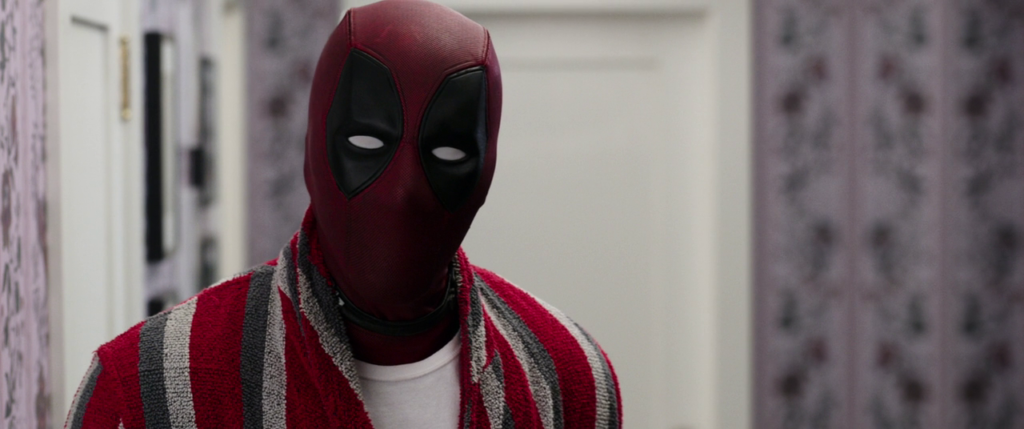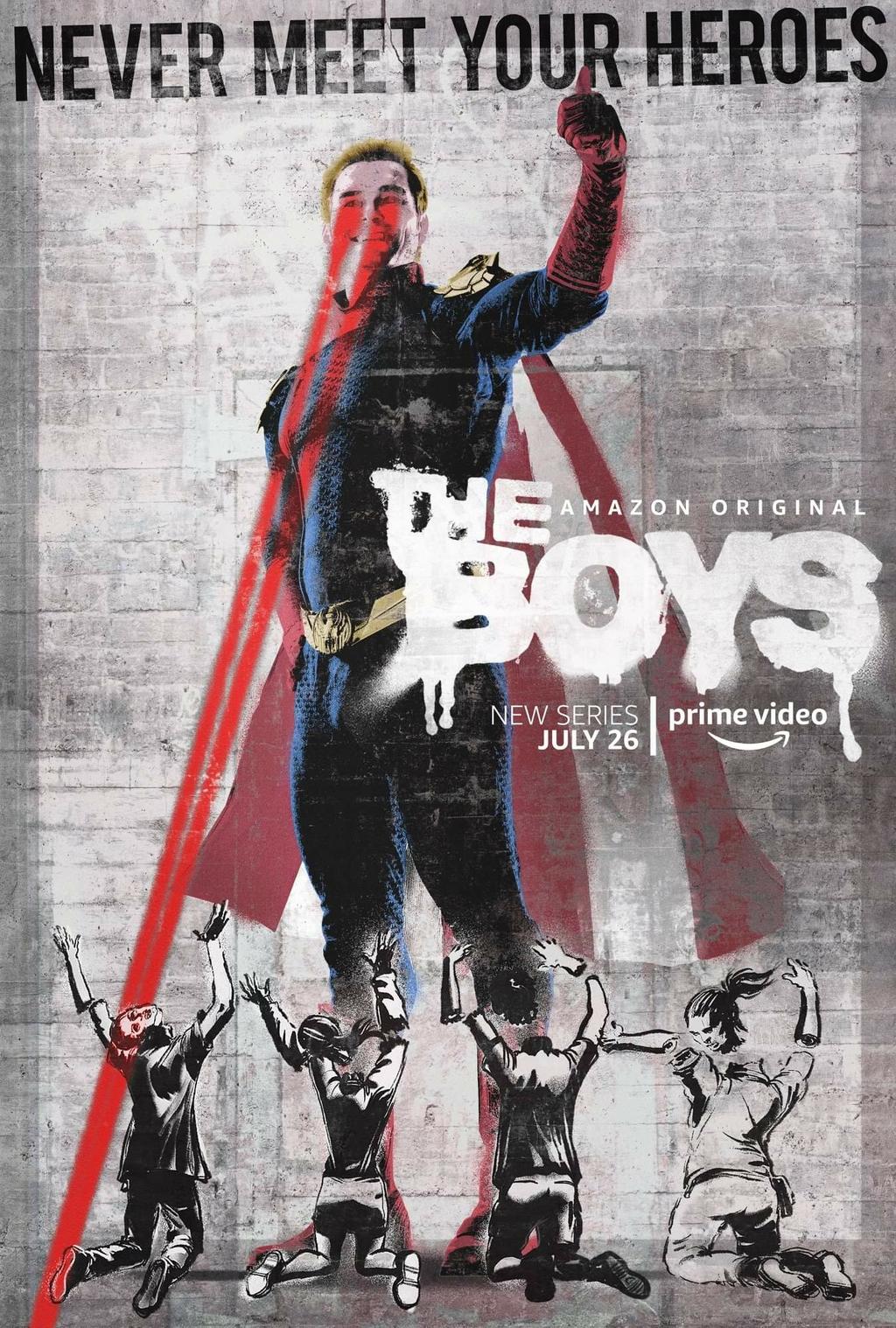It’s a bird, it’s a plane, OH GOD, IT’S HOMELANDER!
*Disclaimer: this show features adult language, content, and themes that Shark Scholar does not advocate. Viewer discretion is advised.
The Boys is set in a world not too different from ours in which commercialism, celebrity stars, and (ugh) reality TV shows are king; the primary difference being the fact that the celebrities in the show are god-like, “super-abled” individuals licensed by the “Vought” corporation instead of say, Coca-Cola. The protagonist Hugh Campbell (or Hughie played by Jack Quaid), like most people in the real world, is largely unconcerned about all of this. This is all simply a fact of life for him, and he even partakes in the blind worship of Vought’s premier “supe” team, “The Seven,” by way of purchasing posters and figurines to adorn his room. Or, at least until he loses his significant other in an unfortunate accident. A spectacular thousand-mile-an-hour-completely-unaccidental-accident committed by A-Train, The Seven’s resident speedster. As it turns out, fame and godhood don’t pair very well together. Who knew?
In a day and age where the mega-corporation Disney literally owns your childhood and comics reign supreme in the media scene, the eight-episode Amazon Prime Original, The Boys, has some scathing and poignant commentary to give that few others would dare to offer. Released on July 26, 2019 as an adaptation of the comic series, it has since received very positive reviews on sites such as Rotten Tomatoes where it enjoyed (a very well deserved) 83% in critic ratings and a whopping 94% in audience ratings.
Being just a normal, even sub-average person, Hughie initially sees no way to even the scales. Vought is the biggest company on the planet with the lawyers and money to back it up. As fate would have it though, Hughie is soon approached by conman and seasoned supe hunter Billy Butcher (played by Karl Urban), and his desire for revenge drags him to heights and depths he never imagined he would reach.

The Boys asks the question of “what would happen if superheros were real?” and tackles that theme in a variety of ways. First and foremost, the entire series has an air of hilarious but morbid comedy. This style highlights the absurdity of so many of the situations in the show, the darker undertones of it all, and how, at least in some respects, reality is only a stone toss away from the show’s cynical depiction of the world. In order to imitate life, the showrunner Eric Kripke (and presumably the comics by Garth Ennis and Darick Robertson) incorporates some of the more disenchanting problems of normal life. Such problems include the effects of celebrity culture and the toxic fame that comes with it, and how having to constantly project a public image can damage the psyche. More issues include the pressures of drug abuse, the effects of childhood mistreatment, and the presence of workplace misconduct that that are rampant in the US. Publicity and public image play a large role in The Boys, as the concept of a public facade is becoming more relevant to the average person with the advent of social media. While the inclusion of these topics may seem gratuitous or unnecessarily political to some, they serve the essential purpose of grounding the world and make it seem lived in, almost tangible.
Some superhero satires of today might be aware of the various issues and cliches of their genre but they, ironically enough, still follow these conventions. They merely pay lip service in mentioning them, usually for a cheap joke or thirty. However, this is far from the case with The Boys. In fact, certain episodes actually revolve around the overused nature of these tropes, either making the subversion of them an essential plot point or else to add significant depth to a character’s personality/backstory. More often than not, these clichés manifest as exactly what they are: attempts by Vought to make their heroes marketable to the public. Other superhero satires such as Hancock and The Incredibles on the other hand, understand subversion correctly too in that their ventures into lampooning the genre had a significant impact on the plot and themes of their respective stories.

The Boys manages to differentiate itself from these other successful satires because of its core purpose. Those other films weren’t meant to strip down and shame the “superhero mythos” and, as such, still told from the perspective of the heroes themselves who still emerged triumphant at the end of their respective stories. The Boys is instead entirely about the common man and how life in such a world would be like—in a word, hellish.
All this is not to say that The Boys is a perfect show. Few rarely are. While the first two episodes are very tightly woven and maintain a razor focus, impactful emotional beats, and great momentum, the later episodes seem to lose much of the former and the latter. While the show brilliantly characterizes its main protagonists and antagonists, many of the side characters are left woefully undeveloped. A few aspects of the show seem somewhat excessive in their execution, and explicitness may alienate a significant portion of its potential viewer base.
All in all, however, The Boys is a very solid show with strong themes and a unique core premise, very justifiably greenlit for another season. Provided it maintains its current tone and progresses from the season one cliffhanger in a natural fashion, it could very well be one of the best shows of 2020.
By Alexander Chu

